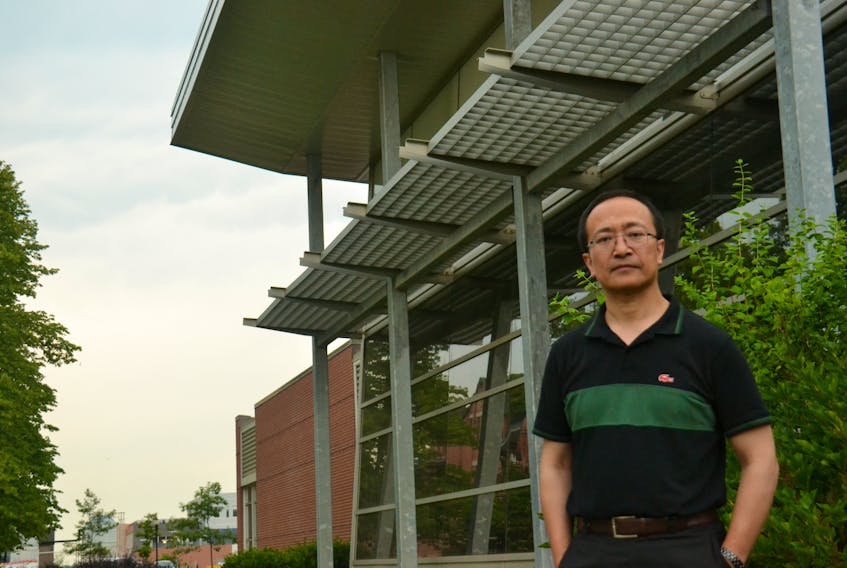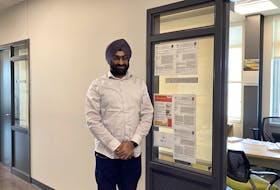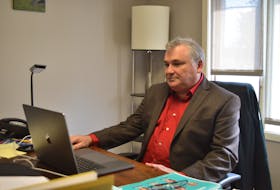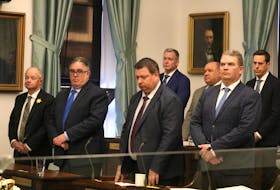CHARLOTTETOWN, P.E.I. - Since Monday, UPEI’s director of international recruitment has been scrambling to find details about how a diplomatic dispute between Canada and Saudi Arabia will affect international students on the Island.
Reached on Tuesday afternoon, Jerry Wang had just heard from the Saudi Arabian Cultural Bureau. It wasn’t good news; all Saudi students in Canada would need to leave the country by the end of September.
The Saudi Arabian government ordered the removal of students from Canada in response to criticisms from Canadian Foreign Affairs Minister Chrystia Freeland in relation to the jailing of activist Samar Badawi.
Badawi’s brother, Raif, was arrested in 2012 and sentenced to 10 years in prison and 1,000 lashes for running a political blog. Raif Badawi’s wife is a Canadian citizen.
There are currently 16,000 Saudi nationals studying at Canadian post-secondary institutions, including 49 enrolled at UPEI.
“Now it's really sinking in. Students now really have to go. But they have to make plans. If I only have two courses to finish to get my degree, what should I do? I think that kind of thing will really be a very harrowing moment for students."
Jerry Wang
“Now it's really sinking in. Students now really have to go,” Wang said.
“But they have to make plans. If I only have two courses to finish to get my degree, what should I do? I think that kind of thing will really be a very harrowing moment for students."
Related: Freeland defends Canada's position, says it will always speak up for human rights
Wang said he spoke to several students on Tuesday afternoon. Some had lived on the Island for several years. Others had children who were attending local schools.
Wang said students have been encouraged to contact the Saudi Cultural Bureau office in Ottawa. It oversees the King Abdullah Scholarship Program, a government program that covers the tuition and living cost of the vast majority of Saudi students currently studying in Canada.
The move by the Saudi government is also likely to have a secondary impact on private English as a second language schools.
Jaime-Lyn LaPierre, the director of operations for Study Abroad Canada, a language school on Queen Street in Charlottetown, said it was unclear what impact the dispute would have on students at her institution.
She estimated there are close to 10 students of Saudi origin enrolled at Study Abroad Canada. She said students who take English-upgrading courses often plan on attending a university in the same region.
"Our understanding from the SACB was they want students to study in the town that they're going to do their post-secondary,” LaPierre said.
This is not the first time a decision from the Saudi government has caused a sudden drop in student enrolment at Canadian universities.
A decision to revise the criteria for the King Abdullah Scholarship Program in 2015 brought a sharp decline in enrolment to Atlantic Canadian universities. Nova Scotia, which had enrolled 1,167 Saudi students at universities, saw a precipitous decline in international student numbers. UPEI’s enrolment of Saudi students has dropped from 80 to 49 since 2015.
Wang said world events often cause a disruption in the enrolment of international students. In recent years, UPEI has attempted to diversify the number of host countries from which it draws students, he said.
The university’s international student population is derived from nationals from 75 countries. The university has attempted to increase enrolment from emerging markets like Nigeria as well as countries like China, which is the country of origin of the majority of international students studying in Canada.
“You still have to have a back-up plan, emergency plans. From the very beginning, that's something universities and colleges should be planning for," Wang said.
The Guardian made several attempts to reach Saudi Arabian students, but did not hear back by deadline.
Twitter.com/stu_neatby









